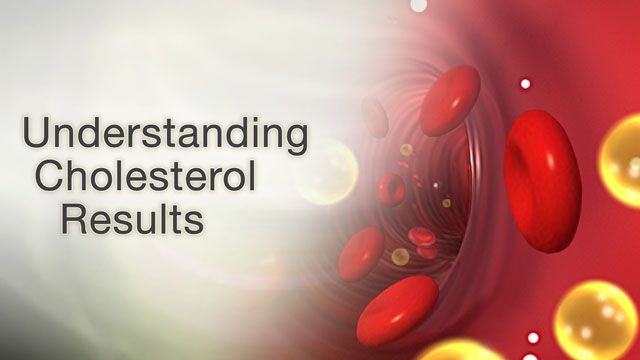Cholesterol - what to ask your doctor
Hyperlipidemia - what to ask your doctor; What to ask your doctor about cholesterol
Your body needs cholesterol to work properly. When you have too much cholesterol in your blood, it builds up inside the walls of your arteries (blood vessels), including the ones that go to your heart. This buildup is called plaque.
Plaque narrows your arteries and slows or stops the blood flow. This can cause a heart attack, stroke, or other serious heart or vascular disease.
Below are some questions you may want to ask your health care provider to help you take care of your cholesterol.
Questions

What is my cholesterol level? What should my cholesterol level be?
- What are HDL (good) cholesterol and LDL (bad) cholesterol?
- Does my cholesterol need to be better?
- How often should I have my cholesterol checked?
What medicines am I taking to treat high cholesterol?
- Do they have any side effects?
- What should I do if I miss a dose?
- Are there foods, other medicines, vitamins, or herbal supplements that may change how well my cholesterol medicines work?
What is a heart-healthy diet?
- What are low-fat foods?
- What types of fat are OK for me to eat?
- How can I read a food label to know how much fat it has?
- Is it ever OK to eat something that is not heart healthy?
- What are some ways to eat healthy when I go to a restaurant? Can I ever go to a fast-food restaurant again?
- Do I need to limit how much salt I use? Can I use other spices to make my food taste good?
- Is it OK to drink any alcohol?
What can I do to stop smoking?
Should I start an exercise program?
- Is it safe for me to exercise on my own?
- Where should I exercise, inside or outside?
- Which activities are better to start with?
- Are there activities or exercises that are not safe for me?
- Can I exercise most days?
- How long and how hard can I exercise?
- What symptoms may I need to watch out for?
References
Arnett DK, Blumenthal RS, Albert MA, et al. 2019 ACC/AHA guideline on the primary prevention of cardiovascular disease: a report of the American College of Cardiology/American Heart Association Task Force on Clinical Practice Guidelines. Circulation. 2020;141(16):e774. PMID: 30879355 pubmed.ncbi.nlm.nih.gov/30879355/.
Genest J, Mora S, Libby P. Lipoprotein disorders and cardiovascular disease. In: Libby P, Bonow RO, Mann DL, Tomaselli GF, Bhatt DL, Solomon SD, eds. Braunwald's Heart Disease: A Textbook of Cardiovascular Medicine. 12th ed. Philadelphia, PA: Elsevier; 2022:chap 27.
Grundy SM, Stone NJ, Bailey AL, et al. 2018 AHA/ACC/AACVPR/AAPA/ABC/ACPM/ADA/AGS/APhA/ASPC/NLA/PCNA guideline on the management of blood cholesterol: executive summary: a report of the American College of Cardiology/American Heart Association Task Force on Clinical Practice Guidelines. J Am Coll Cardiol. 2019;73(24):3234-3237. PMID: 30423391 pubmed.ncbi.nlm.nih.gov/30423391/.
Hensrud DD. Diet and nutrition. In: Goldman L, Cooney, KA, eds. Goldman-Cecil Medicine. 27th ed. Philadelphia, PA: Elsevier; 2024:chap 13.
Mora S, Libby P, Ridker PM. Primary prevention of cardiovascular disease. In: Libby P, Bonow RO, Mann DL, Tomaselli GF, Bhatt DL, Solomon SD, eds. Braunwald's Heart Disease: A Textbook of Cardiovascular Medicine. 12th ed. Philadelphia, PA: Elsevier; 2022:chap 25.
Mozaffarian D. Nutrition and cardiovascular and metabolic diseases. In: Libby P, Bonow RO, Mann DL, Tomaselli GF, Bhatt DL, Solomon SD, eds. Braunwald's Heart Disease: A Textbook of Cardiovascular Medicine. 12th ed. Philadelphia, PA: Elsevier; 2022:chap 29.
Review Date: 7/14/2024









